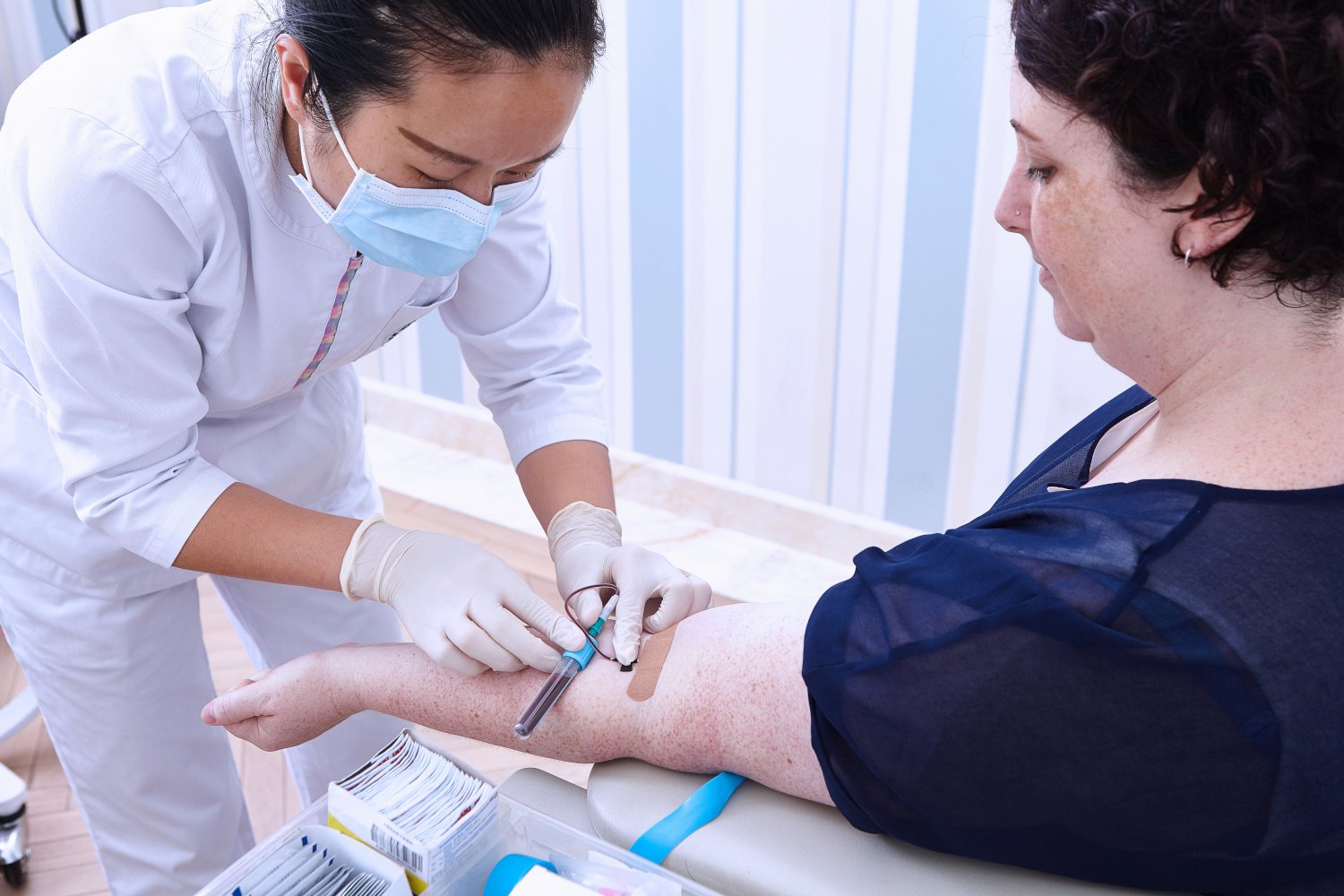More and more people struggling with depression are looking to ketamine treatment for relief. This relatively new antidepressant is proving to be astoundingly effective for treatment-resistant depression, having the potential to offer lasting relief and create meaningful change in the brain.
Only one form of ketamine is FDA-approved: Spravato, an esketamine nasal spray. Esketamine is a derivative of ketamine, traditionally used in both medical anesthesia and as an illicit substance. The key distinction between esketamine and generic ketamine lies in their molecular structure. Ketamine consists of two enantiomers, or mirror-image molecules, known as “R” and “S” ketamine.
Standard ketamine is listed on the WHO Model List of Essential Medicines, but it is considered a generic medicine that can’t be patented, Janssen Pharmaceuticals isolated the “S” molecule and created an esketamine nasal spray, which they branded as Spravato.
This specific molecular orientation is thought to contribute to its distinctive pharmacological effects compared to the racemic mixture of both enantiomers found in generic ketamine. Spravato’s entry into the market is characterized by several distinctive features that set it apart from existing therapies, enhancing its value for those who have struggled with other treatments:
- Targeted Use: Spravato has been specifically approved for patients who suffer from treatment-resistant depression. This condition is characterized by the failure to respond to at least two different standard antidepressants. By focusing on this subgroup, Spravato provides a critical solution tailored to individuals who typically experience minimal benefits from conventional treatment approaches. The specificity of its use underlines the FDA’s commitment to addressing harder-to-treat cases of depression, potentially transforming the treatment landscape for those who feel they have exhausted other options.
- Unique Mechanism: Unlike most traditional antidepressants that target the serotonin system, Spravato interacts with the brain’s glutamate pathways. Glutamate is a neurotransmitter that plays a key role in synaptic responses and is associated with learning and memory. By modulating this system, Spravato offers a novel treatment approach that may benefit patients who do not respond to serotonin-targeting drugs. This mechanism provides new hope as it taps into a different aspect of brain chemistry, potentially overcoming the limitations of existing antidepressants.
- Rapid Effects: One of the most compelling advantages of Spravato is its ability to exert antidepressant effects much faster than traditional medications, which typically take several weeks to become fully effective. Patients using Spravato can experience mood improvement within hours to days of treatment, a critical benefit for those suffering from severe symptoms of depression. The rapid onset of action not only helps alleviate symptoms sooner but also can be crucial in acute cases where immediate symptom relief can be life-saving.
- Ease of Use: Spravato is administered via a nasal spray, a method that stands out for its simplicity and non-invasiveness compared to traditional intravenous antidepressant administrations. This ease of use significantly enhances patient compliance and accessibility, as it eliminates the need for complex medical procedures and the discomfort associated with IV drug administration. The nasal spray form allows patients to receive treatment in a broader range of settings, potentially increasing the overall reach and impact of this therapeutic option.
The introduction of Spravato into the pharmaceutical market is a significant advancement in the treatment of depression. For patients who have felt left behind by existing options, Spravato represents a new horizon of hope and potential relief. However, the use of Spravato is not without challenges and considerations. The treatment must be administered under medical supervision due to potential side effects such as dissociation, dizziness, and sedation, which require monitoring. Continued evaluation will help refine guidelines for its use and possibly expand the conditions for which it can be prescribed, offering new hope for patients with few other treatment options.
With FDA approval, Spravato can be strictly regulated. There are standard doses and procedures for administering this depression treatment, so patients can be assured that they’re getting the same procedure no matter where they go. However, some studies suggest that traditional ketamine infusions are more effective for treating depression than the nasal spray. Licensed professionals can legally administer ketamine infusions, and infusions of off-label generic ketamine are becoming more accessible in mental health treatment centers and ketamine clinics across the country.
Ketamine infusions are quite literally life-changing for many people with treatment-resistant depression, and there is growing evidence that the medication is effective in treating conditions like PTSD and OCD as well. While the treatment is well worth it, ketamine infusions are far from cheap, and unlike Spravato, aren’t as heavily regulated. Many clinics that offer ketamine treatment are making overzealous claims about ketamine and don’t follow best practices when it comes to dosage and frequency of infusions. If you’re thinking about starting ketamine treatment, it’s important to find a clinic that’s reputable to ensure that your therapy is both safe and effective.
What to Look For in a Ketamine Clinic
Mental Health Professionals Staff
It’s essential that the staff, including psychiatrists, therapists, and nurse practitioners, are not only medically proficient but also specialized in treating mental health conditions similar to yours. The presence of qualified professionals ensures that the treatment plan is not merely about dispensing medication, but about fostering a path to recovery. The ultimate aim of having such experts on board is to ensure that every aspect of the patient’s well-being is addressed. This approach helps in creating a supportive environment where patients feel understood and cared for, significantly enhancing the efficacy of the treatment. Always ensure that the clinic you select prioritizes your recovery and mental well-being through a staff that’s committed to your health above all else.
Dedicated Mental Health Focus
When selecting a ketamine clinic, it’s critical to ensure that the facility specializes in mental health treatments or specifically in ketamine therapy rather than offering a broad array of unrelated services. A clinic that dilutes its focus by including treatments such as vitamin infusions or cosmetic procedures like botox may not provide the specialized care necessary for effective mental health treatment. A specialized clinic underscores a commitment to mental health and ketamine treatments, which is crucial for administering such a powerful therapeutic tool effectively. A focused approach means the staff is likely more knowledgeable and experienced in the nuances of ketamine’s effects and potential side effects, thereby enhancing the safety and effectiveness of your treatment.
Honest Ketamine Treatment Disclosures
Transparency from a healthcare provider not only informs but also helps manage patients’ expectations, ensuring they understand the nature and scope of the treatment they are considering. Here’s how a reputable clinic upholds these values:
- Setting Expectations: Patients must recognize that ketamine treatment does not guarantee universal effectiveness. The response to ketamine varies widely among individuals due to differences in physiology, underlying health conditions, and even psychological factors. An upfront clinic will explain that while some patients experience significant improvements in conditions such as depression, others may find the effects less pronounced. This understanding helps patients maintain realistic expectations about the outcomes and the possible need for ongoing or additional treatments.
- Building Trust: A ketamine clinic that engages in open and honest communication about the benefits and risks of its treatments establishes a sense of reliability and integrity. By discussing the variable outcomes and not overpromising results, the clinic demonstrates a commitment to patient welfare over business gains. Such an approach fosters a therapeutic relationship where patients feel valued and genuinely cared for, which is essential for mental health treatments where outcomes can be deeply personal and emotionally charged.
Choosing a clinic that genuinely prioritizes the patient’s well-being through honest communication and comprehensive care strategies is key to achieving the best possible outcomes in mental health treatment. Such a clinic not only treats but also educates and empowers patients, which is fundamental to the healing process.
Holistic and Personalized Treatment
Holistic clinics provide a comprehensive approach to patient care that extends far beyond the initial treatment phase, especially crucial in therapies like ketamine infusions which may require sustained intervention. This ongoing support system plays a vital role in not only addressing immediate health concerns but also in ensuring long-term wellness and adjustment to treatments as patient conditions evolve. The emphasis on continuity ensures that patients receive care that is as adaptive as it is thorough:
- Continuous Support: It involves regular check-ins and the use of advanced tracking tools to observe the patient’s response to treatment over time. By doing so, healthcare providers can identify subtle changes or improvements, ensuring that the treatment protocol remains aligned with the patient’s current needs. This approach not only enhances the effectiveness of the treatment but also reinforces the clinic’s commitment to patient-centric care, fostering a deeper trust between patient and provider.
- Regular Follow-Ups: In holistic treatment settings, scheduled evaluations are a cornerstone of the care process. These are not mere formalities but are critical to understanding the trajectory of a patient’s recovery or response to treatment. During these sessions, practitioners assess both the physiological and psychological aspects of a patient’s health, allowing them to tailor interventions more precisely. These regular touchpoints enable providers to track progress, revisit and revise goals, and ensure that any side effects or new health issues are addressed promptly. The proactive nature of such follow-ups can significantly enhance treatment outcomes and patient satisfaction.
- Periodic Adjustments: The dynamic nature of many health conditions, especially those requiring ketamine treatments, necessitates periodic adjustments to the treatment plans. Holistic clinics excel in this area by not just planning but actively managing the schedule and dosage of treatments like booster infusions. Adjustments are based on a careful analysis of ongoing patient feedback, progress reports, and the latest medical insights. This flexible approach allows treatments to evolve in step with the patient’s needs, optimizing efficacy and minimizing risks. It is a reflective practice that underscores the clinic’s adaptability and dedication to achieving the best possible health outcomes for its patients.
A detailed and patient-focused approach ensures that holistic clinics not only meet the immediate treatment needs but also foster long-term health and well-being, adapting their strategies to suit the evolving health landscapes of their patients. By committing to such rigorous and responsive care protocols, these clinics set a high standard for patient care in the medical community
Thorough Screening Process
This process usually begins with the requirement of a referral from a psychiatrist, ensuring that ketamine therapy is considered only after a comprehensive evaluation of the patient’s psychological health. Additionally, a detailed preliminary diagnosis is crucial to determine if ketamine is a suitable treatment option based on the specific mental health conditions present. This initial screening phase is critical as it helps in identifying whether the patient’s condition can potentially respond to ketamine therapy, which is particularly used for conditions like severe depression, PTSD, and certain pain syndromes.
During the consultation phase, the clinic should conduct an extensive discussion of the patient’s medical history, including any previous treatments and their outcomes, current medications, and overall physical health. This step is vital for crafting a treatment plan that not only addresses the patient’s mental health objectives but also integrates seamlessly with their existing health management strategies. The discussion should cover the potential risks and benefits of ketamine therapy, aligning with the patient’s personal health goals and ensuring they are fully informed. Personalization of the treatment strategy is paramount in such settings, where the aim is to tailor the therapy to the individual’s specific needs, enhancing the likelihood of successful outcomes.
Clinics that overlook the importance of a thorough screening process or engage only in minimal preliminary evaluations pose significant risks. Such practices may lead to non-ideal candidates receiving treatments that are ineffective or potentially harmful, undermining the integrity of patient care. In contrast, clinics that adhere to a rigorous screening process are more likely to achieve positive outcomes, reflecting their adherence to high standards of healthcare provision.
As the demand for innovative depression treatments increases, ketamine therapy stands out as a promising option for those grappling with severe and treatment-resistant conditions. While exploring ketamine treatments, it is crucial to prioritize your safety and the credibility of the clinics you consider. A dedicated, well-staffed clinic that emphasizes personalized care and honest communication about the benefits and limitations of ketamine can significantly influence your treatment outcomes. Engaging with a clinic that integrates ketamine therapy into a broader, holistic treatment plan can offer not just symptomatic relief but also a pathway toward sustained mental wellness.


























